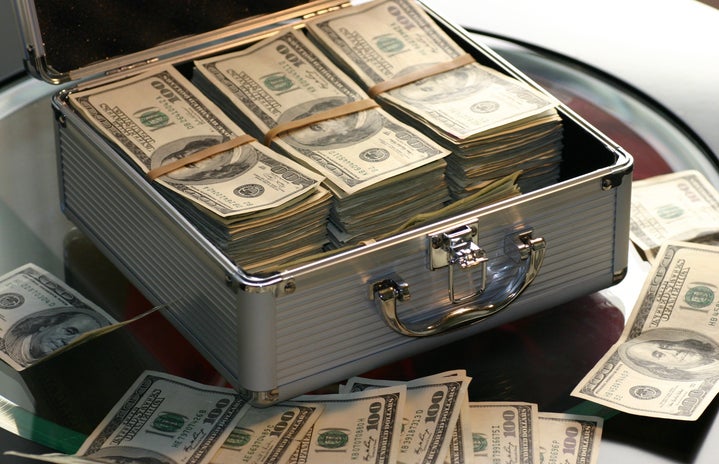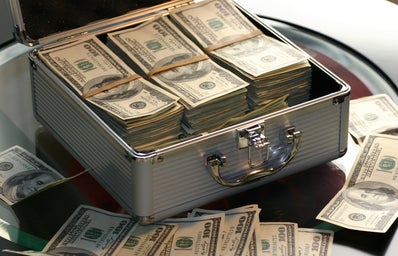In 1793, the streets of Paris were in an uproar. A few years earlier, the country was left in poverty, resulting in a brutal famine. With the monarch eventually executed by guillotine, the people had found they still could eat neither rights nor freedom, and lacked sufficient food to enjoy. However, they noticed something odd: merchants were selling moldy bread, adulterated wine, and diseased meat to the poor while saving their best goods for the wealthy. Notable social theorist Jean-Jacques Rousseau summed up this era in his quote, “When the people shall have nothing more to eat, they will eat the rich.”
Over two centuries have passed since then and the phrase has gained an immense following, only this time, on social media. It seems that in the midst of COVID-19, that saying has grown more popular now than ever before—figuratively, of course. Due to limited testing and asymptomatic cases, the ability to obtain a coronavirus test is extremely difficult…except if you’re part of the 1%. But we know rich privilege is prominent. Class inequality has always been an issue not just nationwide, but also globally. But just because something has been there forever doesn’t mean we should let it go on forever, right?
Let’s flashback a year into March 2019. By now, you’ve probably heard of the infamous “Operation Varsity Blues” scandal: a scheme in which fifty people were involved in either cheating on SAT/ACTs or bribing college coaches and school administrators to accept students as college athletes when they were not. At the center of this controversy were some of the most well-known celebrities, including Lori Loughlin and Felicity Huffman. Famed YouTuber and daughter of Loughlin, Olivia Jade, managed to get into USC on the basis of being on the rowing team.
Of course, when this scandal broke out, everyone was up in arms. In fact, I was actually in the process of college admissions and I remember my peers talking about it in every class. That being said, most of us were a little to not surprised at all, rather just disappointed. We knew things like this happen all the time. Heck, the concept of legacy builds upon it. Those who belong in the upper class are bound to have a greater chance of being accepted into certain colleges than others. It’s not a new concept, just one that finally got shed light.
The “eat the rich” movement has only gotten stronger since then. As mentioned before, the presence of celebrities and high-class individuals obtaining tests, despite many stating they showed no symptoms, is quite possibly the climax of entitlement. I remember the outrage starting about a month or so ago when acclaimed actor, Idris Elba, posted a video on Twitter explaining his contact with the virus and how he is under quarantine in an attempt to prevent spreading.
While I’m a major fan of Elba, I, and many others, were left wondering just how he was able to be administered a test. In personal experience, citizens in my town can only be granted a test if a) they exhibit strong symptoms of the virus and b) they obtain a doctors’ note regarding testing. There are flaws in both these requirements though. In countless sources, including the WHO itself, the virus has an incubation period of up to 2 weeks. This means an individual can spread the disease in a course of 14 days without ever knowing they had it. Cue the domino effect in which this silent killer can pass through several borders without being detected. In terms of a doctors’ note, we’ve already talked about the state of American healthcare (read here).
All these things considered, it was almost a shock when, in the following weeks, more prominent media figures came forth about their diagnosis, positive or not…all whilst the vast majority of Americans are unable to take a test. Skip forward a bit more and you have the viral sensation that was the “Imagine” cover, featuring high-profile celebrities like Gal Gadot, Jimmy Fallon and Kristen Wiig. Thousands of people on social media were outraged about this for more reasons than one; Not only did most of the people featured sound ~not great~, the situation was extremely ironic: A group of people worth millions of dollars, that they could easily donate, sang a song calling for an imagining of a world with no possessions or greed. It’s what most people saw as tone-deaf.
In this graph by Axios, only about 10% of those in the lower or lower-middle class are working from home while over 40% of those in the upper or upper-middle class are. This isn’t just showing rich privilege though, but also the drastic difference in exposure to the virus one can have based on their class. The irony? As you go higher up on the triangle, more people report their emotional well-being has gotten worse, despite having more resources and being sheltered the most. Don’t get me wrong, this is not to discredit anyone’s feelings or invalidate thoughts, but it’s hard to deny the ignorance in those higher up in the social classes and this is just one of the visuals of it.
Even with the Parisians in the late 18th century, the effects of wealth distribution and advantage are present everywhere in society. But remember this: the rich can run (to their second homes), but they can’t hide from this pandemic.
Disclaimer: I’m not telling anyone to eat the rich (figuratively or literally), just that it’s worth mentioning how big of an aspect social class is in nationwide catastrophes.


